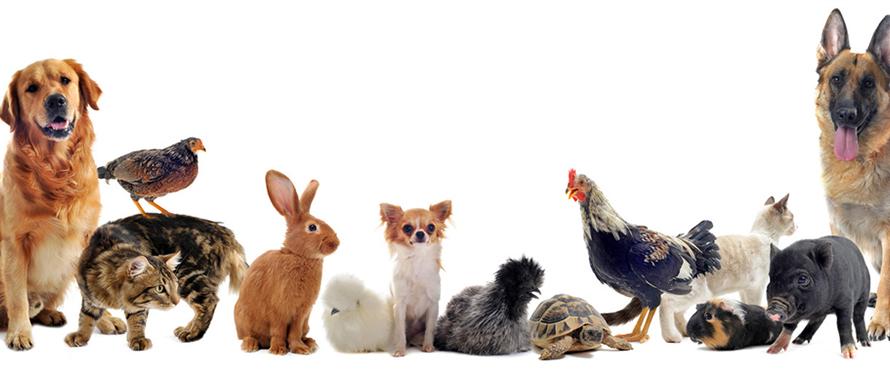A career in veterinary medicine involves working with animals to promote their health, diagnose and treat illnesses and injuries, and provide preventative care. Veterinarians may work in a variety of settings, including private practices, animal hospitals, research labs, and government agencies. Their duties may include performing surgeries, administering vaccinations and medications, conducting diagnostic tests, and advising pet owners on proper care and nutrition. A career in veterinary medicine requires extensive education and training, including a Doctor of Veterinary Medicine (DVM) degree. Veterinarians must be licensed in order to practice in the United States. Licensing requirements vary by state, but prospective veterinarians in all states must complete an accredited veterinary program and pass the North American Veterinary Licensing Examination (NAVLE). Learn more
Note: It is not recommended to self-advise. There are many things to consider besides the required courses, such as prerequisites and course sequencing, balancing your schedule, building in time for volunteering, shadowing, research, entrance exam preparation, and planning for the application cycle. See the Director of Pre-professional Advising for individualized long-term planning.
Students who are planning to apply to veterinary programs will need the following:
- Bachelor’s degree with a competitive cumulative and science GPA
- Required prerequisite coursework
- Research experience (Recommended)
- Veterinary-related experience
- Communication and leadership skills
- Letters of Recommendation
- Personal Statement
- Graduate Record Exam (GRE)
- CASper
- Understand the application timeline
- Illinois veterinary medicine programs
- Pre-veterinary resources
Degree and GPA
A baccalaureate degree is not required for all programs though it is highly recommended and can be in any field as long as the prerequisites are met. Biology and Biochemistry majors can meet all prerequisites within their programs. Other majors will still need to take the prerequisite courses in addition to their major and degree requirements.
To be a competitive applicant students must have a strong grade point average (GPA). Professional programs will look at several GPAs:
- Cumulative GPA: all courses and from all schools attended including repeats, remedial courses, and possibly graduate-level courses
- Science GPA: includes biology, chemistry physics, and often math (or BCP/BCPM)
- Prerequisite GPA: calculated only on the prerequisites necessary for that particular professional school program.
- All other GPA: calculated on all courses EXCEPT your science courses
Professional schools do not honor “grade forgiveness” or “grade replacement” for repeated courses. All grades count and repeats are averaged together. There is also no expiration date on courses taken many years ago.
Prerequisite Coursework
The following list indicates the most common classes required or highly recommended by most veterinary schools. Applicants should always check directly with each program they are applying to and see the Preprofessional Advisor for more information.
Required
|
Writing I & II |
ENG 101 & 102 |
|
Biology I & II |
BIOL 201 & 202 |
|
General Chemistry I & I |
CHEM 211 & 212 |
|
Organic Chemistry I |
CHEM 231 |
|
Biochemistry |
BIO 362 |
|
Physics I & II |
PHYS 201L & 202L |
Additional courses to consider
Cell Biology, Genetics, Anatomy and Physiology, Microbiology, Animal Science, Zoology, Organic Chemistry II, Statistics, Calculus, Public Speaking, Neurobiology, Nutrition, and other advanced Biology.
Prerequisite Notes
- AP and IB credits are generally not accepted as prerequisites. Check before applying.
- Community college credits can be viewed differently by each program. Check before applying.
- Some programs do not accept international courses to meet prerequisites. Check before applying.
- Online lab courses are not accepted toward prerequisites. Some programs will not allow any online coursework. There may be some exceptions for courses taken at the height of the COVID-19 pandemic. Check before applying.
- Too many withdrawals (W's) on your transcripts can reflect negatively on your application.
- Some programs have expiration dates on their prerequisites. Make sure you have taken them within the program's time requirements.
Research Experience (Recommended)
Undergraduate research is not required for admission however, Veterinary programs value the experience and it can make an applicant stand out. Subjects can include basic science, biomedical, and clinical research, as well as social science and health systems research. You can reach out to the Student Center for Science Engagement for help finding research opportunities.
Veterinary-Related Experience
Shadowing
According to the College of Veterinary Medicine at the University of Illinois, Illinois' only veterinary school, it is expected that a student will make every possible attempt to observe veterinarians in a variety of settings (large animal practice, small animal practice, research, wildlife/conservation work) to acquire an overview of what the profession is all about. Getting large animal experience is often the most difficult to find. Seek out veterinarians who work with large animals such as horses and farm animals. There is no minimum amount of experience designated, but the Admissions Committee definitely wants to see a student articulate the learning they acquired in these experiences.
Volunteer/Community Service
Besides shadowing or volunteering at veterinary clinics, many students volunteer at animal rescue shelters like the Anti-Cruelty Society and organizations such as PAWS Chicago. There are many options and organizations all over the city and surrounding areas. By getting starting volunteering at these organizations, many students move on to become veterinary assistants.
Communication and Leadership Skills
Get involved on campus through student government, honors programs, or student organizations that are related to your major or future profession such as the Future Health Professionals Club. Get involved by participating in their events. They often conduct enrichment programming and even community service. Try to become an officer in an organization to gain leadership experience. You must take this role seriously though and live up to the commitment you make. You can search all of NEIU's Student Organizations to find others that are a good fit for you.
As a health professional, you will be a leader and team member with your patients, staff, colleagues, and in your community. Other ways to gain leadership experience include offices held in organizations, committee work, leadership in religious activities, coordinating a project; managing, training, and supervising at work, teaching or training experience of any kind, tutoring, as well as peer counseling or mentoring.
Letters of Recommendations (3-5)
You will need at least two to three strong letters of recommendation ideally from science faculty and/or relevant professionals preferably from clinicians who have supervised you in clinical settings. You will need to give them at least two months’ notice so be sure to research the letter of recommendation requirements for each program you're planning to apply.
Get to know people from these ideal categories so you will feel comfortable asking them to write excellent letters for you.
- Veterinarians whom you worked for or shadowed
- Science professor
- Employer or supervisor
Learn more on how to request letters of recommendation. Please note that NEIU does not offer a committee or composite letter.
Personal Statement
You will have to write a personal statement/essay as part of your application. It should be about two pages double-spaced and discuss how your life has led you to your desired career. While most personal statements are general in nature and can be used for multiple applications, some programs want applicants to follow specific guidelines and answer prompts that they will provide. Check with the schools you’re applying to and make sure you’re following directions. Look up examples of personal statements and have several people read yours before submitting it. If you would like to talk about why you’re interested in a particular program you can write several statements and customize them as needed.
This is also your opportunity to show the admissions committee who you are beyond your GPA, test scores, and experiences. It communicates what is important to you and explains in-depth your reasons and motivations for pursuing professional school. Additionally, a personal statement can help explain any gaps in education or experiences, as well as any weaknesses in an application.
Learn more about how to write Personal Statements.
Graduate Record Exam (GRE)
While many veterinary programs no longer require the GRE, some still do. Be sure to check with each program you're planning to apply to. The GRE is administered throughout the year. It may be repeated, but the best strategy is to prepare thoroughly and take it once. Taking the exam by the spring of the year before you wish to enter PA school will enable you to apply earlier. More information on the GRE.
GRE structure:
- Two (2) multiple choice sections which are scored on a scale of 130-170
- Verbal Reasoning
- Quantitative Reasoning
- One (1) Analytical Writing essay that is scored on a 6-point scale.
GRE Preparation Resources
CASper
The Altus Suite, which includes CASPer Snapshot, and Duet, is a multi-part assessment that evaluates applicants for people skills in a fair and reliable way while giving applicants multiple opportunities to showcase their unique personal and professional strengths. It's an online, open-response situational judgment test (SJT) required by some veterinary schools. It asks what you would do in a tough situation, and more importantly, why. This helps determine the behavioral tendencies of applicants pursuing people-centered professions. Not required by all veterinary schools (including Illinois) and some may only require CASPer and not the other evaluations in the suite.
CASPer assesses for 10 characteristics: Collaboration, Communication, Empathy, Equity, Ethics, Motivation, Problem-Solving, Professionalism, Resilience, and Self Awareness. It is a 60-90 minute virtually proctored assessment, made up of 12 sections. Each section contains a video-based or word-based scenario and three open-ended questions. Test-takers have five minutes to type their responses to all three questions. CASPer website.
Application Timeline
Veterinary medicine programs admit students once a year in the fall. The application cycle begins about 12-15 months before you intend on enrolling, in the spring of the year prior to enrollment. However, the exact timing depends on when you will take the GRE (if needed), complete prerequisites, etc. Meet with your paraprofessional advisor to develop a long-term plan for applying. Keep in mind that course scheduling, extra-curricular activities, exam preparation, and even your personal and family life can all contribute to the need of having flexibility in your timeline.
The Veterinary Medical College Application Service opens in mid-January and the first date you can select programs in the application is in May. You should have selected which PA schools to apply to, have contacted those who will write letters of recommendation for you, ordered official transcripts from all colleges attended, and completed your personal statement by this time. The VMCAS application cycle closes in September. Application services verify primary applications and notify applicants of verification or problems.










